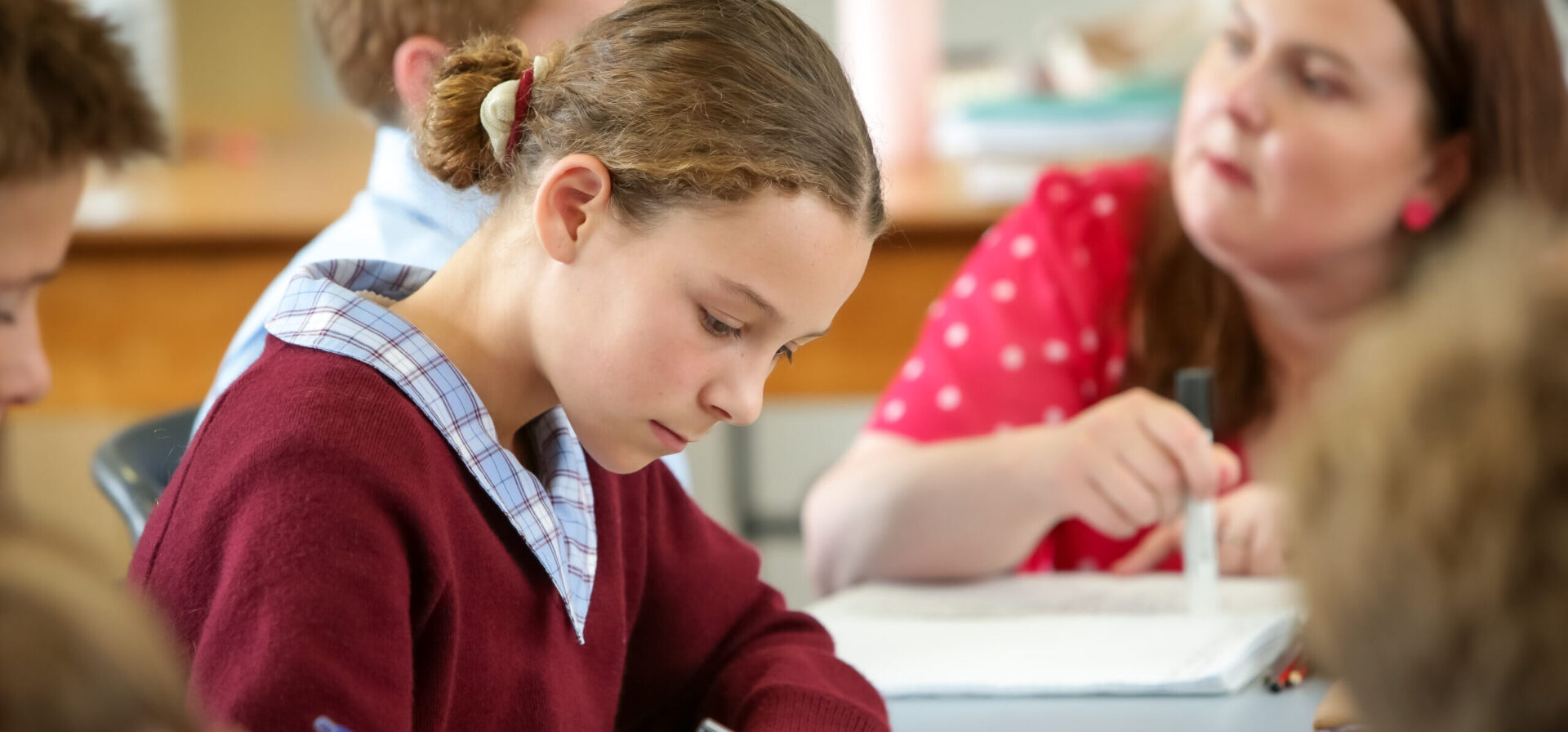In 2024, Chevalier College will implement a new and innovative educational approach that empowers students and redefines learning. Future Facing will change the way Chevalier students learn, creating a contemporary educational experience with Knowledge, Capabilities & Self-development at its core. By using time more effectively to maximise engagement and personal growth, students connect more deeply with their learning, acquiring complex capabilities and greater self-awareness to help them flourish in a rapidly changing world.
The Approach
Education today must prepare students for a future in a rapidly changing world and the current system is falling short. It is our belief that an educational approach that is flexible, adaptable, and focussed on developing the Knowledge, Capabilities & Self-development of the individual is critical to our students’ success in the modern world.
Our goal is that every student at Chevalier College can achieve their potential. Students develop knowledge through the core curriculum of English, Maths, Science, Religious Education, HSIE, PDHPE, Creative and Performing Arts and Technology. Future Facing complements excellence in the core curriculum by developing students with Complex Capabilities and an innate sense of self to help them succeed.
Learn more

All aspects of Future Facing aim to enhance student agency, modernise learning schedules and support teacher collective efficacy. As a learning organisation, Chevalier will be reviewing and assessing the impact of this new approach. To do so, we will be working with an Action Research Partner, Dr Phil Cummins and his team.
In shaping Chev Future Facing, we've enlisted support from a range of organisations and compiled research links to robustly evidence the program.
All aspects of Future Facing aim to enhance student agency, modernise learning schedules and support teacher collective efficacy. As a learning organisation, Chevalier will be reviewing and assessing the impact of this new approach. To do so we will be working with an Action Research Partner, Dr Phil Cummins and his team.
During 2024, our action research team, along with Dr Phil Cummins collected extensive qualitative and quantitative data through surveys and focus groups, engaging with students, staff and parents/carers.
You can read the full findings from the action research process here.
We are pleased to share that the findings were that the Best Use of Time Initiative should be continued, refined and augmented in future years. After thoughtful consideration, the Board endorsed its integration as a permanent feature of Chevalier College’s ‘Future Facing’ educational strategy.
MyDesign Education: mydesigneducation.com.au
New Metrics – University of Melbourne: education.unimelb.edu.au/melbourne-assessment/home/partnerships
CIRCLE Group and School for Tomorrow: aschoolfortomorrow.com/circle
A study titled The Effectiveness of the Flipped Classroom on Students’ Learning Achievement and Learning Motivation: A Meta-Analysis, examined the effects of the flipped classroom approach on students’ learning achievement and learning motivation compared to traditional lecture-based instruction. Based on a total of 95 eligible studies with a total of 15,386 students, it was found that the flipped classroom approach had an overall positive effect on students’ learning achievement and learning motivation. The finding expanded the previous studies and revealed that the use of the flipped classroom had a significant impact on learning motivation. Furthermore, there was no significant difference among different subject areas. This finding indicated that learning domains did not have a significant impact on the effectiveness of the flipped classroom. This result might be explained by the fact that the appropriate use of flipped classroom would be effective in any learning domains that design effective in-class learning activities. At Chevalier we are increasing the use of high impact teaching strategies as facilitated by Michael McDowell. Also, we are facilitating efficient and effective use of information technologies through Canvas, Chevalier’s Learning Management System.
The study Flipped Classroom for an Active Learning (2020) concluded that flipped teaching, if well implemented, has a high potential for student learning (Jacques & Lequeu, 2020; Joksimović et al., 2019; Petillion & McNeil, 2020) in their preparation for the competences needed for the 21st century, in terms of their employability, entrepreneurship, innovation, literacy and contribution to sustainable development, which does not invalidate the need for further studies (Jang & Kim, 2020).
This is an artefact from the University of NSW – pre-service Teacher Education Course titled The Flipped Classroom: What is a flipped classroom?. This argues the value of a flipped class is in the repurposing of class time into a workshop where students can inquire about lecture content, test their skills in applying knowledge, and interact with one another in hands-on activities. During class sessions, instructors function as coaches or advisors, encouraging students in individual enquiry and collaborative effort.